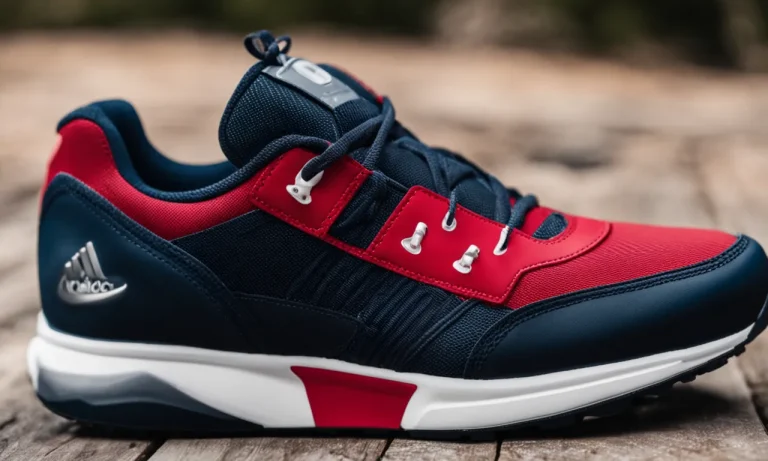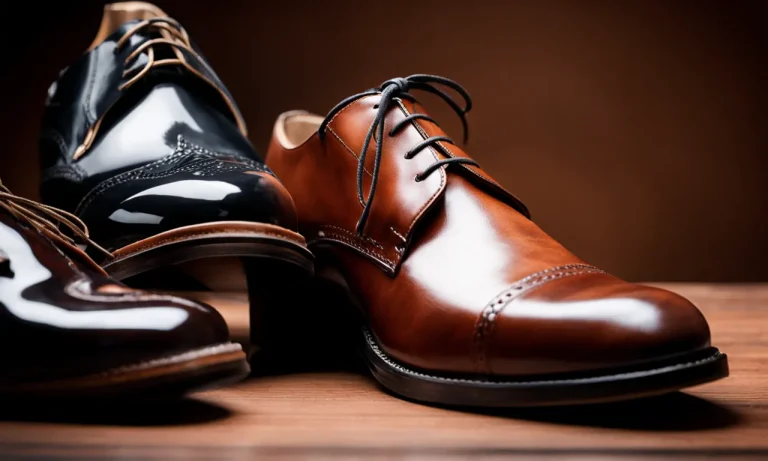Sneaker culture has exploded in popularity over the last decade. Limited edition sneaker drops from brands like Nike, Adidas, and Yeezy often sell out in minutes. This scarcity has led to a thriving resale market where sneaker resellers try to buy limited pairs and flip them for big profits.
If you’re wondering how lucrative shoe reselling can be, you’ve come to the right place.
If you’re short on time, here’s a quick answer to your question: Skilled resellers can make anywhere from a few hundred to a few thousand dollars profit per month. Top resellers generate six figure incomes flipping sneakers full time.
What is Sneaker Reselling?
Sneaker reselling is the practice of buying popular and limited-edition sneakers at retail prices and then selling them at a higher price in the secondary market. It has become a thriving industry that attracts sneaker enthusiasts, collectors, and entrepreneurs alike.
Resellers leverage their knowledge of the sneaker market to acquire highly sought-after shoes and make a profit from the demand and scarcity surrounding these products.
Definition of sneaker reselling
Sneaker reselling involves purchasing sneakers from retail stores, online platforms, or other resellers and reselling them at a markup. Resellers often rely on their understanding of the market to identify which sneakers will increase in value over time.
They may also use various strategies such as buying in bulk, forming connections with retailers, or leveraging social media platforms to reach potential buyers.
Brief history of the sneaker resale market
The sneaker resale market has evolved significantly over the years. It gained traction in the 1980s with the rise of basketball shoes and collectors seeking limited-edition releases. However, the industry truly exploded with the advent of online marketplaces like eBay and dedicated sneaker platforms such as StockX and GOAT.
These platforms provided a global marketplace for resellers and buyers, facilitating transactions and increasing the visibility of the resale market.
Today, sneaker reselling has become a multi-million dollar industry, with individuals and businesses specializing in buying and selling sneakers. The market is driven by a combination of brand hype, celebrity endorsements, and the scarcity of certain sneaker models.
How resellers buy and sell shoes
Resellers employ various strategies to acquire sneakers that they can later sell for a profit. They may wait in line outside retail stores, monitor online releases, participate in raffles, or use automated bots to secure limited-edition releases.
Additionally, resellers often network with other collectors and resellers to gain access to exclusive deals and early releases.
Once resellers acquire the sneakers, they list them for sale on various platforms. These platforms provide a marketplace where buyers can browse and purchase sneakers at different price points. The resale price of a shoe is typically determined by factors such as demand, rarity, and condition.
Some resellers may hold onto sneakers for a certain period, anticipating that their value will increase over time.
It’s important to note that sneaker reselling is not without its challenges. The market can be highly competitive, and resellers need to stay informed about upcoming releases, market trends, and pricing fluctuations.
Additionally, there is always a risk of counterfeit sneakers, so resellers must be knowledgeable in authenticating sneakers to ensure they are selling legitimate products.
What Kinds of Profit Margins Do Resellers Make?
When it comes to reselling shoes, profit margins can vary greatly depending on several factors. Understanding these factors can give you a clearer idea of how much resellers actually make.
Factors that affect profitability
Several factors can affect the profitability of reselling shoes. The first and foremost is the demand for the shoes. Limited edition releases or collaborations with popular brands can fetch higher prices in the resale market.
Additionally, the condition of the shoes, their rarity, and the size of the reseller’s network also play a significant role in determining the profit margins.
Another important factor is the initial purchase price. Resellers who are able to secure the shoes at retail price have a higher chance of making a larger profit. However, if the shoes are purchased at a higher price, the profit margin will naturally be lower.
Margins for popular shoes like Yeezys and Jordans
Popular shoes like Yeezys and Jordans are known for their high resale value. These shoes are often released in limited quantities, which creates a sense of exclusivity and drives up demand. As a result, resellers can make significant profits by reselling these sought-after sneakers.
The profit margins for popular shoes like Yeezys and Jordans can range from 30% to over 100% of the initial purchase price. However, it’s important to note that these margins can fluctuate depending on the specific release and market demand at any given time.
Average profit per pair for seasoned resellers
Seasoned resellers, who have built a strong network and have experience in the market, can generally expect to make higher profits per pair. On average, they can make anywhere from $50 to $200 per pair, depending on the factors mentioned earlier.
It’s worth mentioning that these figures are just averages, and there are resellers who have been able to make much higher profits through strategic buying and selling.
For more information on shoe reselling and profit margins, you can visit reputable websites like Sneaker News or Sneaker Files that provide insights and resources for resellers.
Reseller Income Potential for Part-Timers vs Full-Timers
Typical earnings for part-time sneaker resellers
Part-time sneaker reselling can be a lucrative side hustle for those who have a passion for sneakers and the drive to turn it into a business. While the earnings can vary depending on factors such as the number of shoes sold and the demand for specific sneakers, part-time resellers can still make a significant income.
On average, part-time sneaker resellers can earn anywhere from a few hundred to a few thousand dollars per month. This income can come from selling limited edition releases, rare vintage sneakers, or even collaborations between sneaker brands and celebrities.
The key is to have a good understanding of the sneaker market, be able to identify trends and valuable sneakers, and build a network of buyers and sellers.
Part-time resellers typically have other sources of income and may not dedicate as much time to their sneaker business. However, with the right strategies and connections, part-time resellers can still generate a substantial income.
Income ceilings for top full-time resellers
For those who decide to go all-in and become full-time sneaker resellers, the income potential can be even greater. Full-time resellers have the advantage of being able to dedicate more time and resources to their business, allowing them to reach higher income ceilings.
Some of the top full-time sneaker resellers have reported earning six-figure incomes annually. These resellers have built successful businesses by leveraging their knowledge of the sneaker market, establishing relationships with suppliers and buyers, and consistently staying ahead of the latest trends.
One of the ways top full-time resellers maximize their income potential is by diversifying their inventory. They not only focus on limited edition releases and collaborations but also invest in rare and collectible sneakers that can appreciate in value over time.
By constantly staying informed about market trends and making strategic buying decisions, these resellers are able to generate impressive profits.
It is important to note that not all full-time sneaker resellers reach these income levels. The sneaker reselling market can be competitive, and success depends on factors such as market conditions, the ability to source sought-after sneakers, and effective marketing and sales strategies.
Tips and Strategies For Maximizing Profits
Shoe reselling can be a lucrative business if approached strategically. Here are some tips and strategies to help resellers maximize their profits:
Securing limited release shoes for retail
One of the key factors in maximizing profits as a shoe reseller is being able to secure limited release shoes for retail. These limited edition sneakers often have high demand and limited supply, making them highly sought after by collectors and enthusiasts.
Resellers can increase their chances of getting these shoes by staying informed about release dates, following sneaker blogs and social media accounts, and building relationships with local retailers.
Additionally, using automated bots or entering raffles can also improve the odds of securing these highly coveted sneakers.
Negotiation tactics for buying/selling
Negotiation skills are crucial in the shoe reselling business. Being able to negotiate favorable prices when buying shoes from suppliers and negotiating higher prices when selling to customers can significantly impact profits.
Resellers should research market prices, understand the value of the shoes they are dealing with, and be prepared to walk away from a deal if the terms aren’t favorable. Building rapport with suppliers and customers can also make negotiations smoother and more successful.
Minimizing fees and other costs
To maximize profits, resellers need to minimize fees and other costs associated with their business. One way to do this is by selling directly to customers through platforms that have lower transaction fees, such as social media marketplaces or personal websites.
Resellers can also explore bulk buying options to get better pricing from suppliers and reduce shipping costs. Additionally, keeping track of expenses and optimizing inventory management can help identify areas where costs can be minimized.
It’s important to note that the profitability of shoe reselling can vary depending on factors such as market trends, competition, and the reseller’s expertise. However, by implementing these tips and strategies, resellers can increase their chances of maximizing profits in this dynamic and exciting industry.
Scaling a Shoe Resale Business
Transitioning from casual reseller to registered business:
For those looking to scale their shoe resale business, transitioning from a casual reseller to a registered business is a crucial step. Registering your business not only adds legitimacy to your operations but also opens up opportunities for growth.
By registering as a business, you gain access to various resources and benefits such as tax deductions, business loans, and the ability to enter into partnerships with other companies. Additionally, registering your business allows you to establish a brand identity and build trust with customers, which can greatly enhance your reputation in the market.
Hiring employees to grow faster:
As your shoe resale business continues to grow, hiring employees can be a game-changer. By bringing on additional staff members, you can delegate tasks, increase productivity, and expand your reach. Hiring employees with a passion for sneakers and a strong understanding of the resale market can help you stay on top of trends and ensure a smooth running operation.
It also allows you to focus on strategic decisions and further scale your business. However, it is important to carefully consider the financial implications of hiring employees and ensure that the cost is justified by the growth opportunities they bring.
Establishing an online sneaker consignment store:
One effective way to scale your shoe resale business is by establishing an online sneaker consignment store. This allows you to reach a wider audience and tap into the global market. With an online store, you can showcase your inventory, provide detailed product descriptions, and offer a seamless purchasing experience for customers.
Additionally, having an online presence enables you to leverage digital marketing strategies such as social media advertising and search engine optimization to increase brand visibility and attract potential customers.
There are several e-commerce platforms available that make it easy to set up an online store, such as Shopify or WooCommerce.
Conclusion
Sneaker reselling can be extremely lucrative for those with dedication and skill. While part-timers can earn a nice side income, the top full-time resellers join the ranks of self-made millionaires every year. With the right strategies and execution, scaling a shoe resale business is very achievable.






